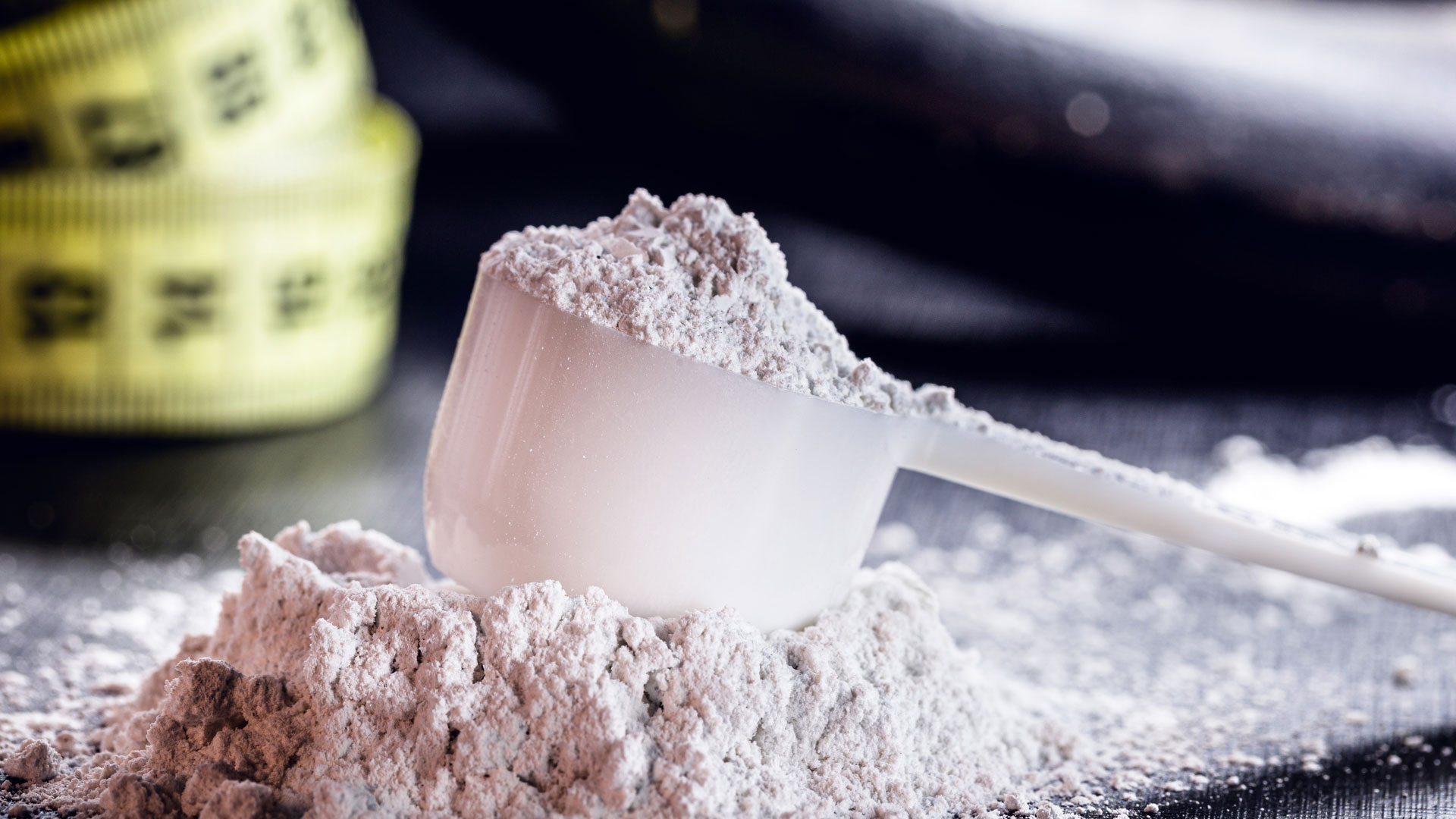
Start your week with achievable workout ideas, health tips and wellbeing advice in your inbox.
You are now subscribed
Your newsletter sign-up was successful
It’s a very popular supplement, but is creatine safe? It’s used by all kinds of people, from athletes to general gym-goers, mostly to enhance performance. Whether you're already taking the best protein powder for weight loss and want to explore other supplements or you've already started taking creatine, we have all the answers you need.
According to numerous recent studies, creatine is said to improve strength, increase lean muscle mass, and help muscles recover more quickly during exercise.
But is creatine safe to consume regularly? And what effect does it have on the body? We’ve enlisted the help of several experts in the fitness and nutrition space to give us the low down on whether we really should be taking this popular supplement, or not. We’ll also look at how creatine works in your body, the recommended dose for those looking to start their creatine journey, and what kinds of people should swerve it all together.
What are the effects of creatine?
Creatine is known for giving users achieve better performance and offers bursts of speed and energy, especially during short bouts of high-intensity activities such as weight lifting, HIIT workouts, or sprinting. But how exactly does it work in the body and what are its effects?
We spoke to Sophie Medlin, consultant dietitian and founder of City Dietitians, who breaks down how creatine works in the body, on a more scientific level:
“When you’re exercising, your cells need an energy called adenosine triphosphate (or ATP) to work,” explains Medlin, adding that your body needs a lot of this to function properly during a workout.

“When your cells use ATP for energy, this molecule is converted into adenosine diphosphate (ADP) and adenosine monophosphate (AMP). Creatine exists in cells in the form of creatine phosphate (or phosphocreatine), which donates a high-energy phosphate group to ADP, thus turning this molecule back into ATP.”
Start your week with achievable workout ideas, health tips and wellbeing advice in your inbox.
Medlin explains that increasing the overall pool of cellular phosphocreatine through creatine supplementation, can accelerate the recycling of ADP into ATP, thereby making more energy available for high-intensity exercise.
“This increased availability of energy can promote improvements in strength and power output,” she adds. “It can also improve the rate of recovery and reduces delayed onset muscle soreness (DOMS), which means people feel able to get back to training more quickly.”
Still, like anything, creatine can cause a number of side effects in some individuals - particularly when used in excess. Although they are very rare, such side effects include weight gain, anxiety, breathing difficulty, diarrhea, fatigue, fever, headache, kidney problems, nausea, vomiting, rash, and stomach upset.
And since researchers still don't know the long-term effects of taking supplements, especially in young people, it’s recommended by doctors not to go over the daily recommended dose (which we will come onto shortly).
Is creatine safe?
The big question, and one that a lot of people ask when they start taking creatine for the first time, is: “is creatine actually safe?”.
Ryan Hodgson, Health and Lifestyle Coach at Hodgson Health, told Fit&Well:
“Creatine is 100% safe. It’s found in skeletal muscle already and in many foods too. That being said, overconsumption of creatine can cause upset stomach, and gas and even affect the liver, however, this is rare, and provided you’re taking a healthy dose, [it] wouldn’t pose any problems.”
Hodgson adds that some people experience diarrhea and nausea when taking too much creatine at one time.
“In this case, the doses should be spread out throughout the day and taken with meals.
“Stomach cramping can occur when creatine is supplemented without sufficient water but supplementation is generally safe for most people when taken in the recommended dose and the stomach symptoms can improve as you get more used to it.” Hodgson adds.
Who shouldn’t take creatine?

The International Society of Sports Nutrition states that the average person requires between one and three grams of creatine per day. Around half of this comes from the diet, and the body synthesizes the rest. However, since creatine occurs naturally in red meat and fish, those on a plant-based diet who wish to improve their performance at the gym can supplement their diet with creatine.
There are - of course - people that shouldn’t take creatine supplements, such as those with kidney or liver disease, and those who suffer from diabetes, according to the Mount Sinai school of medicine. Women who are pregnant or nursing should also steer clear.
Another thing to note is that you shouldn’t take creatine if you are taking any medication or supplement that affects your blood sugar, because creatine has been known to alter blood sugar levels, according to some studies.
If you are taking creatine for the first time and unsure how you're going to react to it, it’s recommended that you drink plenty of water to prevent dehydration.
Want to find out more about creatine? Check out our feature covering how to use creatine.
Lee Bell is a London-based journalist, copywriter, specializing in all things tech and lifestyle. He is also a qualified personal trainer. He started his journalism career a decade ago as a reporter covering the latest gadgets and innovations at tech tabloid The Inquirer. Lee went freelance in 2016 to broaden his expertise, moving into news, reviews and feature writing for a host of national print and online lifestyle titles such as GQ, Forbes, Esquire, Men’s Health, Wired, The Metro, and The Mirror. He has an insatiable appetite for travel, Dharma yoga, and the odd outdoor challenge.

